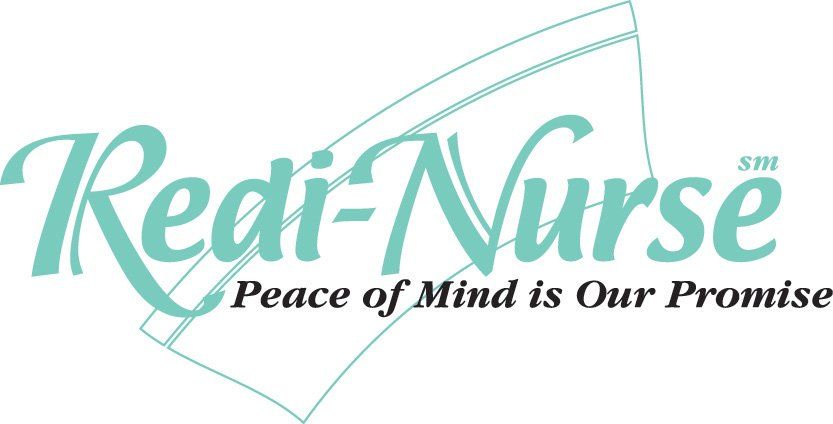Can In-House Care Help With Alzheimer's Management?
May 26, 2022
Alzheimer's, a progressive form of dementia, is a common issue among many seniors. The condition results from a combination of lifestyle, genetics, and age-related changes in the brain.
Some early signs that your loved one has Alzheimer's are memory loss, poor communication, disorientation and confusion, and poor coordination. Your loved one may also develop psychological issues like anxiety, depression, and agitation.
Although Alzheimer's may be inevitable, things get much more manageable with in-house nursing. Learn how.
In-House Care Improves Cognitive Function
Sometimes, a familiar environment is all your loved one needs to remember stuff. Retaining the patient's daily routine to keep their brain on track also helps.
For instance, suppose your loved one is used to watching a TV show before bedtime. Or, they love sitting around with their kids and grandkids for daily catchup at dinner. Maintaining such simple routines helps to reduce the symptoms of memory impairment. The patient may not understand everything now, but the fun activities often trigger a sense of love and normalcy and keep them calm.
At the same time, in-house care allows the elderly to maintain their favorite rest time spots. They can also interact with the neighbors and spend time with their pets if they own one. Such household memories boost their cognitive function and lower memory loss.
In-house nursing is a chance to stay around the structures and people they are familiar with, something they won't get if you transfer them to a care facility.
In-House Care Maintains a Healthy Diet
As soon as you notice the first sign of Alzheimer's in your loved one, do some diet tweaks to reduce the progression of symptoms. Some foods, such as fish, poultry products, leafy greens, and blueberries, slow down age-related cognitive problems.
However, the elderly might not be able to keep track of their diet, especially with memory loss and confusion. Also, you are probably busy with work, school, and your social life, so you may not always be there for them.
Invest in in-house care, and let the experts handle the patient's diet needs. These professionals know which foods are best for memory loss and which ones to avoid. They can develop a healthy routine, prepare meals, and even feed your patient.
The best part with home care is that your loved one has undivided attention. The nurse puts all their attention on your loved one, so they can quickly tell the kind of foods your loved one enjoys and which ones to do away with. Again, this is a privilege a loved one may never enjoy in a care facility.
In-Home Care Ensures Full-Time Company
Social contact helps to delay or slow down the symptoms of dementia in seniors. It also boosts their mood, which eliminates Alzheimer's effects like anxiety and agitation.
Unfortunately, in today's dynamics, some parents live miles away from their grown-up kids. And loneliness often feels like the norm of the day, which increases dementia.
In-house care ensures that your loved one has a full-time companion to converse, play games, and exercise with. The caregivers are always there to remind the patient to take medications and attend appointments.
You can rest assured that your loved one will get undivided and personalized attention from the right home care providers. Moreover, if the senior requires specific support like toileting, bathing, and dressing, the nurses are trained to fulfill that.
Your life doesn't need to come to a standstill when your loved one has Alzheimer's. A Visiting Redi-Nurse can provide your loved one with full-time assistance to make life manageable both for you and the patient. Contact us
today, and let's discuss the best care plan.
Many families turn to private duty nurses to help shoulder the responsibilities and care for their loved ones. Read this blog to learn more.
A natural disaster can happen to anyone at any time. Preparedness is vital, so to help you create a workable plan, use these tips for success.
Are you the caretaker for an elderly loved one? If so, learn about a few of the benefits you and your loved one can enjoy with a visiting nurse.
Your loved one can benefit from different forms of therapy. In-home nursing services can bring the therapy to your loved ones. Look at three common options.
Read on to discover some reasons why in-home nursing services might be the best choice for people needing medical and personal help.
If you suspect that your loved one has dementia, you should learn more about the condition. Read this blog for a quick overview of dementia.
Proper exercise is key to a healthy lifestyle, particularly as people grow older. Learn about different exercises that are especially great for seniors.
The care of a patient with dementia presents many challenges. Discover some ways to cope with the difficulties of caring for a loved one with dementia.
Do you care for a senior who is frailer? Discover four smart steps you can take to reduce fall risks for the senior who is physically frail in your life.





